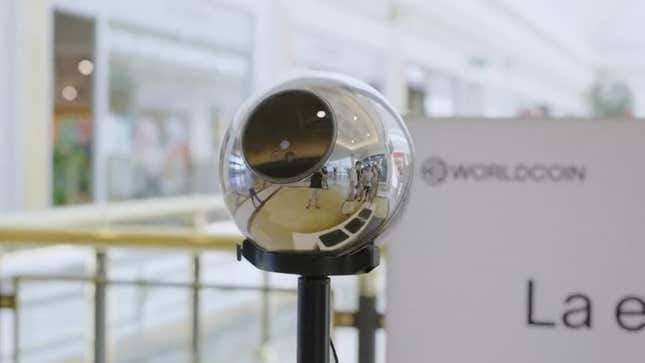Worldcoin announced the open-sourcing of software components for its iris-scanning Orbs, enhancing transparency and privacy features.
In a blog post, the Worldcoin Foundation announced that it had implemented open-source software components to power its iris-scanning Orbs, making them accessible to the general public.
As stated in the announcement, the fundamental components of the Orb program can be accessed on GitHub under a dual license that combines MIT and Apache 2.0 versions.
It has previously provided hardware, and the new open-source components “complement” existing hardware. In the release, there is code on the Orb that is essential for capturing photographs and uploading them to the product’s app securely.
Worldcoin Assures Orb’s Privacy
When it comes to creating transparency for Orb’s image processing, it stated that its publicly available software and iris recognition repositories represent “significant progress.”
Furthermore, the company asserts the verifiability of its privacy assurances. Additionally, the company disclosed an additional privacy feature known as “Personal Custody.”
This was in addition to the open-sourcing of extra software responsible for the famed metallic, eye-scanning Orb. This new feature enables individual users to take control of the data they have given to Worldcoin.
The Orb’s private key signs a data package, which the user then encrypts with a public key before delivering the data to their mobile phone.
According to the developer, this indicates that users will “always remain in control of their data” and that only the individual can decrypt this collection of biometric information.
“Once the encrypted data is sent from the Orb to the individual’s World App, no unencrypted copies of this data exist anywhere.”
According to the company, the inventor of the functionality, it has the potential to reduce the number of times users would need to return to an Orb to validate their World ID.
Regulators worldwide are scrutinizing this change to Worldcoin due to privacy concerns. The government of Kenya rejected a request from the United States to lift the suspensions of the Worldcoin project on March 21.
The Kenyan government has declared that until it can ensure the safety of Worldcoin for the Kenyan people and the integrity of financial facts, it will prohibit activities related to Worldcoin within the country.
Worldcoin announced on its blog on March 18 that it works “lawfully in all of the locations in which it is available” and that it is entirely compliant with all laws and regulations that regulate the gathering and transmission of data.
However, it encountered further resistance at the beginning of March. During this particular instance, the Spanish Agency for the Protection of Data temporarily restricted Worldcoin’s operations and ordered that the cryptocurrency terminate its local data collection and processing activities.
Sam Altman, the CEO of OpenAI, the company behind the AI-based chatbot ChatGPT, co-founded Worldcoin. Additionally, OpenAI’s decision to not open-source the code for its artificial intelligence models is currently under scrutiny.












